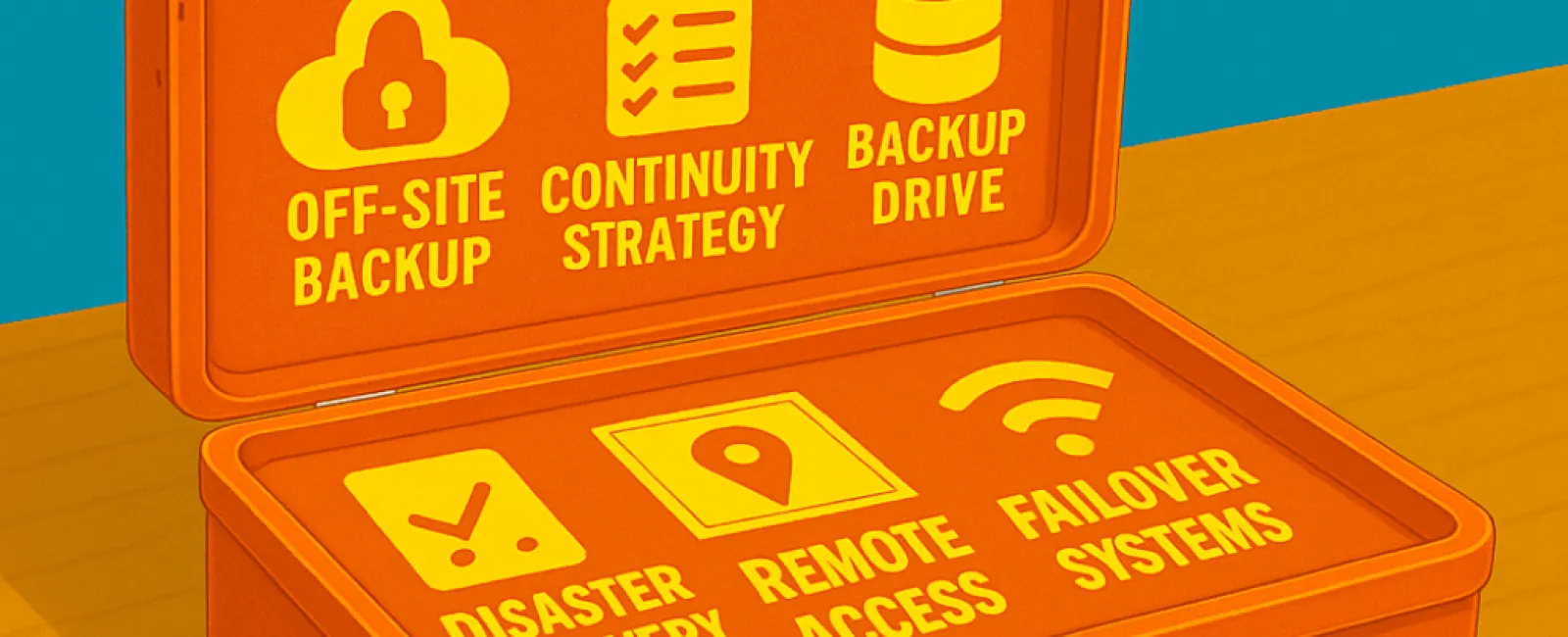July 28, 2025
Unexpected power failures, cyberattacks, hardware malfunctions, and natural disasters strike without notice, posing severe risks to small businesses. Relying solely on backups isn't enough; recovering a file doesn't guarantee your operations keep running. If your systems are inaccessible, remote work isn't supported, and communication breaks down during a disruption, even brief downtime can cause long-lasting damage. Your IT partner should not only provide backups but deliver a comprehensive resilience plan to keep your business thriving through any crisis.
Backups Alone Won't Cut It — Prioritize Business Continuity
Backups play a vital role, but they're only one piece of a much larger puzzle. You need a robust business continuity strategy that proactively ensures your company can maintain operations throughout and after any disruption.
When systems fail, files become unreachable, or your workplace is inaccessible, just having a backed-up copy stored locally won't prevent costly disruptions. Without a well-crafted plan to swiftly resume business activities, you risk losing revenue, damaging your reputation, and falling out of regulatory compliance.
Understanding the Critical Difference: Backups vs. Business Continuity
Here's where many businesses make a critical mistake:
● Backups focus on restoring your data.
● Continuity ensures your business operations keep running regardless of what happens.
An effective continuity plan clearly answers:
● How quickly can we bounce back?
● Where will our team operate if the office is inaccessible?
● Which systems are indispensable for our mission?
● Who is responsible for initiating recovery procedures?
It also incorporates essential elements such as:
● Encrypted, immutable backups stored off-site
● Defined recovery objectives with prioritization (RTO/RPO)
● Preparedness for remote work scenarios
● Redundant systems with automated failovers
● Routine disaster recovery drills and testing
If your IT provider can't confidently guide you through these critical aspects, you're depending on luck — not true protection.
Is Disaster Really a Threat to Your Business? Absolutely.
This isn't fear-mongering. Real disasters with devastating impacts are happening every year:
● Florida hurricanes have forced hundreds of businesses to halt operations without cloud-based access.
● North Carolina floods wiped out on-site servers, erasing important months of records.
● California wildfires destroyed entire offices with no off-site recovery available.
● Numerous small businesses facing ransomware attacks discover their backups were corrupted or untested.
Disasters affect organizations of all sizes—your business is not immune.
You Should Be Asking These Critical Questions Right Now:
If disaster strikes tomorrow, will your business keep moving forward?
Ask your IT provider:
● If ransomware infects us, how fast can we recover?
● Are backups tested regularly, and which systems do they cover?
● What's the contingency plan if a flood or fire destroys our office?
● Is our business continuity plan fully compliant with industry regulations?
● Can we continue serving clients if our team is forced to work remotely?
If you hesitate on these answers, your business is vulnerable right now.
Disasters Are Inevitable. Downtime Doesn't Have To Be.
While you can't prevent every outage, cyberattack, or natural disaster, you can control how your business responds.
A good IT provider helps you recover.
A great IT partner ensures your business never misses a beat.
Ready to evaluate your business's resilience?
Click Here or call us at 985-302-3083 to book A Quick Call, and let's build a plan to keep downtime out of your future.



